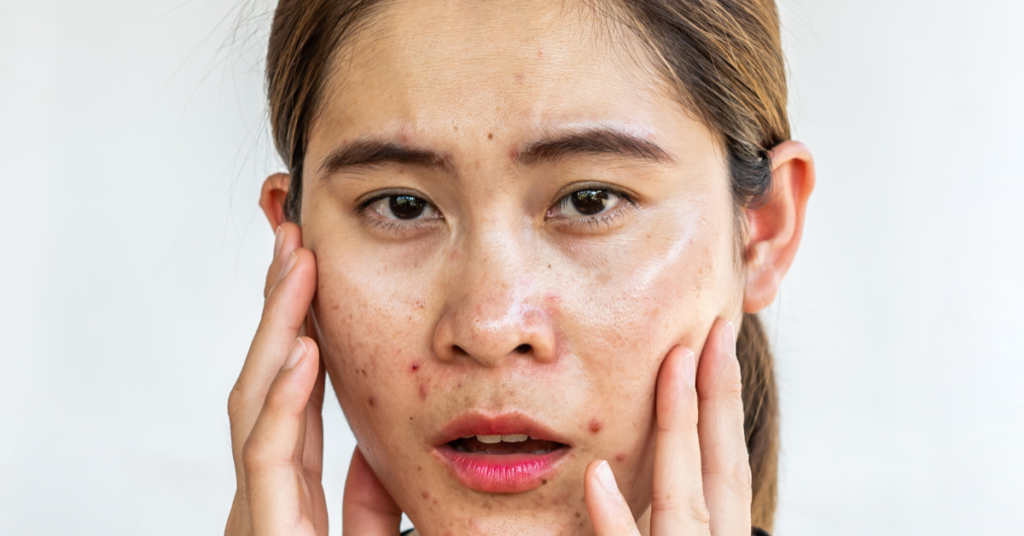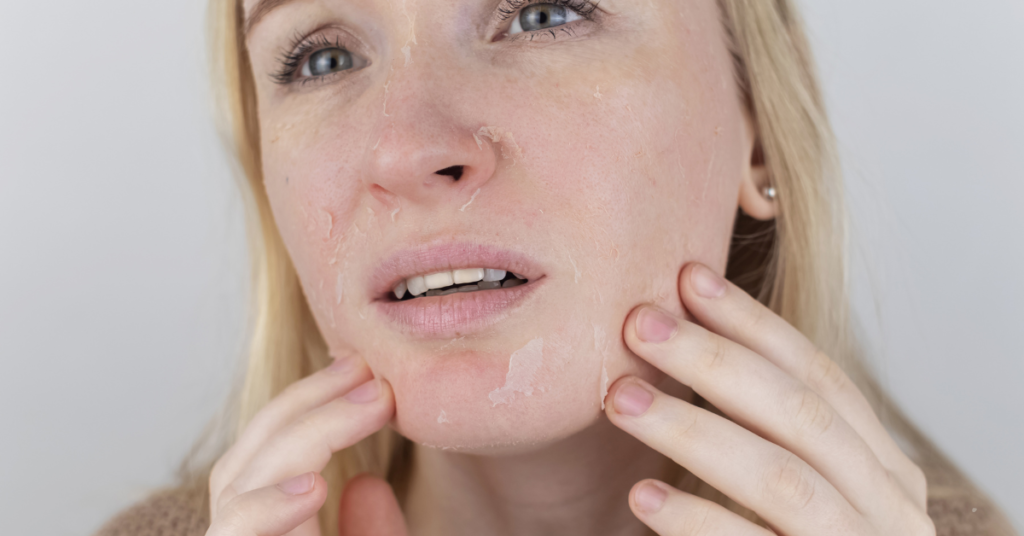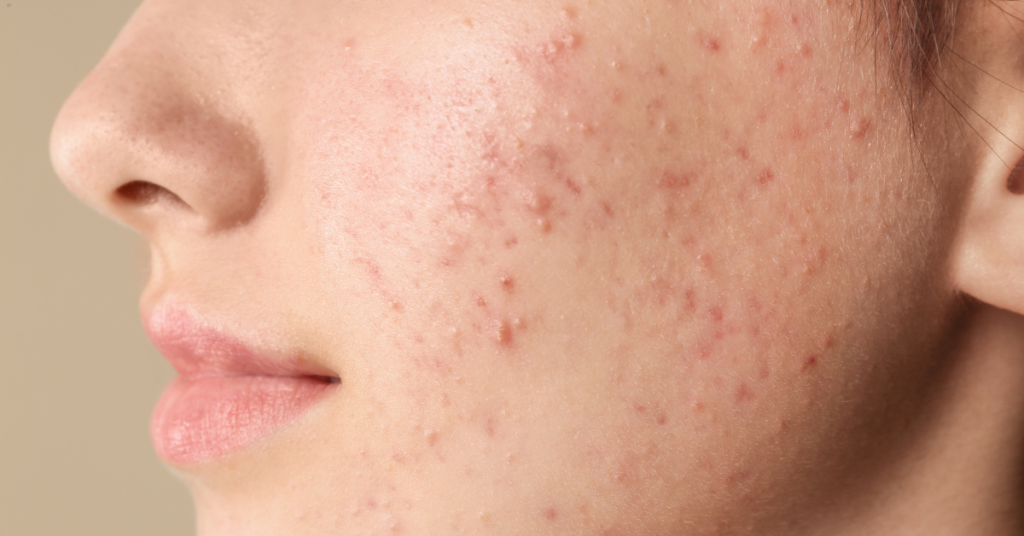Oil cleansers have become more common in the care of the face and skin, but many people still doubt whether such products are appropriate for oily or dry skin. Many people particularly those with oily skin are usually hesitant when it comes to using oil to cleanse their faces, but there is a method in that madness oil cleansers work differently. They remove dirt, makeup, and extra oil without drying out the skin or causing irritation. In this article, we’ll explore “Is Oil Cleanser Good for Oily, Dry, and Acne Prone Skin” types, and how to use them effectively.
Table of Contents
How Do Oil Cleansers Work?
Oil cleansers operate on the principle of “like dissolves like.” This means that oils can effectively break down other oils, such as sebum (the oil produced by your skin), sunscreen, and makeup, which are often oil-based. Traditional cleansers, such as foaming or gel cleansers, sometimes strip the skin of its natural oils, leaving it dry or irritated.
On the other hand, oil cleansers work by binding to the oils on your skin and gently removing them without disrupting the skin’s moisture barrier. When you apply an oil cleanser, it dissolves impurities and makeup, making it easier to rinse away.
Some people also follow the oil cleanser with a second cleanser, a method known as double cleansing, to ensure a thorough cleaning, especially after wearing heavy makeup or sunscreen. But is this method suitable for all skin types? Let’s dive into how oil cleansers perform for oily, dry, and acne-prone skin.
Is Oil Cleanser Good for Oily Skin?

If you have oily skin you may cringe at the idea of putting on an oil-based product wondering if it is going to make your skin even oilier or cause an outbreak. However, using an oil cleanser can benefit oily skin in a few important ways:
- Balancing Oil Production: Interestingly, the oil-based cleansers useful in removing sebum promote the regulation of sebum secretion on the skin. If for example, you have a habit of using strong cleaning agents that remove the skin oils and minerals, the skin reacts by secreting more oil.
- Dissolving Excess Oil: An oil cleanser is specifically effective for the skin since it’s in charge of dissolving as much oil as can be found in the skin as possible. Unlike the water-soluble cleaning agents, they may not dissolve oil-based products.
- Non-Comedogenic Oils: Most of the oil cleaners have non-comedogenic oils, which means that they don’t clog the skin pores for users with oily skin. Seek for products that have light oils such as jojoba oil, grapeseed, or sunflower oil.
In conclusion, although they may be runoff blemish control face washing these oil-based cleansers are the perfect fit if added to the skin care regimen.
Is Oil Cleanser Good for Dry Skin?

For people with sensitive skin especially dry skin, the oil cleaners are gentle and effective in removing the skin’s impurities, unlike their dry counterparts. Here’s why they’re beneficial:
- Hydration: Oil cleansers are very moisturizing. Since they do not remove the skin’s natural oils on the skin they assist in preserving the skin moisture, making it suitable for people with dry or sensitive skin types.
- Preventing Irritation: Most difficult cleaning agents cause dry skin so if not well handled, the skin becomes red or develops flakiness. Oil cleaners, however, are way more gentle to the skin as compared to normal ones. preserve the skin from getting exposed to irritants, which may cause inflammation.
- Effective Makeup Removal: It is a common phenomenon that most dry-skinned people feel that when they wipe off the makeup, the skin also goes dry. Oil cleansers effectively remove makeup; even when it’s stubborn like mascara or waterproof eyeliner you do not have to vigorously rub your skin for it to come off.
To sum up, oil cleansers can be a big advantage for dry-skinned people maintaining skin’s moist state and cleansing it from dirt and pollution at the same time.
Is Oil Cleanser Good for Acne-Prone Skin?

It may seem strange to think about using some type of oil for a person who has issues with acne and breakouts. Nonetheless, oil also has its uses for this skin type, as long as the product is chosen correctly.
- Clearing Pores: Skin that develops acne tends to secrete sebum in large proportions, hence blocking the skin pores could cause acne. Cake, Öl-cleansers may also assist in emulsifying this excess sebum and reaching deep down into the pores to prevent the formation of acne.
- Non-Comedogenic Formulas: Like in the case of oily skin, ensure that you use an oil cleanser that does not cause breakouts if you have acne-prone skin. The skin does not become oily or greasy when using the lighter oils.
- Reducing Inflammation: Some oils for instance tea tree or rosehip contain enzymes that have anti-inflammatory functions and these can reduce inflammation associated with acne flare.
Thus, the oil cleanse method can be used with oily skin types but only if the choice of oils and other components of the product corresponds to the requirements for the regulation of seborrhea.
How Often Should You Use an Oil Cleanser?
The frequency of oil cleanser use depends on your skin type and daily needs. Here are some general guidelines:
| Skin Type | Recommended Frequency of Oil Cleanser Usage |
| Oily Skin | Once a day (preferably in the evening) |
| Dry Skin | Morning and night |
| Acne-Prone Skin | Once a day (adjust based on skin reaction) |
This table provides a clear overview of how often to use an oil cleanser based on different skin types!
Do Oil Cleansers Clog Pores or Help Clear Skin?
The most frequent question about oil cleansers is if the skin is prone to acne or has large pores, the oil cleanser will clog the pores. It depends on the type of oil that is used in the formulation of the cleanser. Sebum and other non-comedogenic oils.
For example, grapeseed, hemp seed, and sunflower oil can help remove pores because they break the sebum-congested pore blockers down. However, don’t confuse them with heavy and rich oils such as coconut oil because they can clog the pores if you have oily skin or acne-prone skin.
To get the non-comedogenic oil cleanser, always look out for the label on the product that will indicate whether or not the product is non-acnegenic.
Do Oil Cleansers Cause Acne?

Oil cleansers themselves are not the cause of acne, however, they should not be used if the wrong type of oil is applied. Some of the most common types that can cause acne include heavy oils or comedogenic ingredients that clog the pores – ouch!
Nevertheless, with the usage of non-comedogenic light oils, using an oil cleaner will assist in eliminating spots by eradicating the extra oil and dust pile on the pores.
The last thing you want is a reaction or worse, a breakout, especially with acne-prone skin, so be sure to use a product that specially addresses sensitive and acne-prone skin.
Tips for Choosing the Right Oil Cleanser
Choosing the right oil cleanser for your skin type is essential. Here are a few tips:
- For Oily Skin: Look for lightweight oils like grapeseed or jojoba. Avoid heavy oils like coconut or olive oil, which may be too rich for oily skin.
- For Dry Skin: Richer oils such as avocado or almond oil can provide extra hydration and nourishment.
- For Acne-Prone Skin: Stick to non-comedogenic oils like hemp seed or rosehip oil, which won’t clog pores or contribute to breakouts.
How to Use an Oil Cleanser?
So the usage of oil cleanser is easy. Here’s a step-by-step guide:
- Start with dry skin.
- Wash and massage the oil cleanser on the face, especially on the part with makeup or oily T-zone area.
- Wash with warm water or, use a wipe cloth to clean with warm water to remove the oil.
- If this is what you want to achieve, use a second cleanser (the double cleanse method.)
Conclusion
Facial cleaners should not be avoided when you have oily or dry skin or other skin issues, because oil cleaners are gentle on the skin. Oil cleansers can regulate sebum secretion, keep skin moist, and have healthy skin by selecting a proper formula and applying it properly. It is worth giving oil cleansing a try if it will be effective for you.
More Interesting: What Oil to Use for Dermaplaning? | Explore Top 5 Oils
FAQS
Should I oil cleanse every day?
In general, it is possible to oil cleanse your skin daily, especially when the skin type is dry. But for those people who have oily or acne-prone skin, they can do it at first several times a week as it can be very damaging.
Does oil cleanser clog pores?
In general, oil-based cleansers do not cause blackheads or other blemishes related to the blocking of pores. They work by providing a solution to excess oil and dirt in the skin, this clears pores rather than clogging them.
Is an oil-free cleanser good for oily skin?
Actually, oil-less cleansers can be good for oily skin whereby wiping off excess oil as they do not add oil to the skin. They can help avoid the formation of pimples and dull the skin’s glow.
Who should not use oil cleanser?
Specifically, it is useful to be cautious with those individuals who possess highly sensitive skin or haveAcephalac, as some of the oils can cause certain skin reactions.

